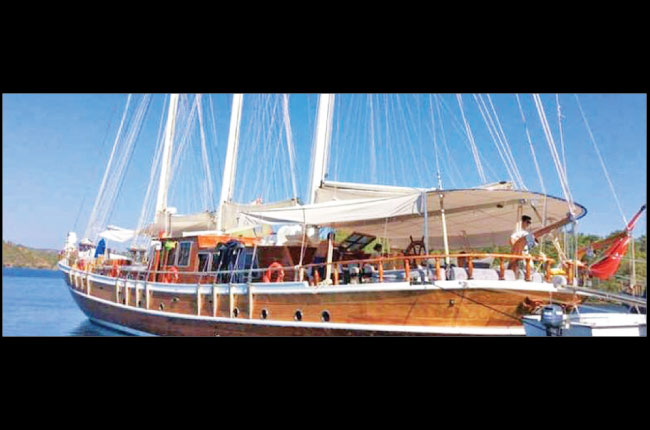Politicians & red tape thwarted region’s first sail powered luxury cruise ship

Sri Lanka’s tourism sector has immense potential, but it has faced significant challenges. One notable setback occurred when a luxury cruise project was halted due to political greed and bureaucratic red tape. Philippe Gomez, the Chairman of Madulkelle Tea and Eco Lodge in Kandy, shared his experiences and frustrations in a recent interview. His story highlights the struggles faced by foreign investors in Sri Lanka and the impact of political interference on the country’s hospitality industry.
The Vision for a Luxury Cruise Experience
Philippe Gomez’s journey in Sri Lanka began three decades ago. He first visited the island as part of a European tour and quickly fell in love with its beauty. Over the years, he made multiple trips and eventually invested in the first luxury glamping tourism venture in Madulkelle, located on a picturesque 24-acre tea estate. This investment came during a tumultuous period marked by the LTTE war, when many investors hesitated to commit to the country. Gomez, however, believed in the resilience of Sri Lanka’s tourism sector.
His vision extended beyond glamping. Gomez aimed to introduce the “Pearl 111 Yacht,” a unique nine-cabin luxury cruise ship. This vessel would have anchored at popular tourist destinations like Colombo, Galle, and Trincomalee, offering a new high-end attraction for visitors. Unfortunately, his plans were thwarted by political demands and bureaucratic hurdles. A powerful minister sought to become a shareholder without any financial investment, which Gomez declined. His attempts to secure necessary approvals were met with delays and requests for financial favors, forcing him to abandon the project.
First STS operation for liquid cargo at Hambantota International Port
A Shift to the Maldives and Future Prospects
After facing insurmountable obstacles in Sri Lanka, Gomez redirected his efforts to the Maldives. There, he found a welcoming environment for his luxury cruise project. The “Pearl 111 Yacht” has since become a sought-after attraction, showcasing the potential that could have been realized in Sri Lanka. Despite his disappointment, Gomez remains optimistic about the future of Sri Lanka’s tourism sector. He sees a new opportunity for collaboration with the government and is eager to engage with the Board of Investment (BOI) to bring French investments in various sectors, including agriculture, renewable energy, and technology.
In addition to tourism, Gomez plans to venture into agro-based exports, focusing on spices and tea sourced from his hotel. This initiative aims to connect Sri Lankan products with European markets, further enhancing the country’s economic prospects. With a change in government and a renewed sense of hope, Gomez is ready to invest in Sri Lanka once again, believing that the country can reclaim its position as a premier tourist destination.
